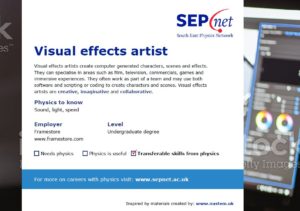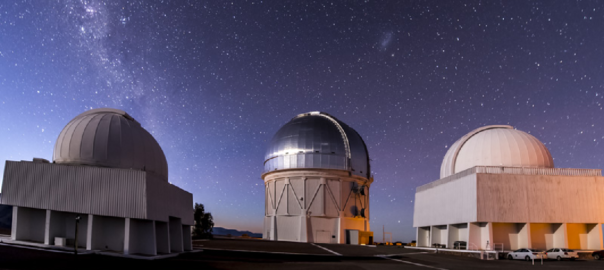Tomás E. Müller Bravo, School of Physics and Astronomy, University of Southampton gives his perspective on organising and delivering a SEPnet student-led conference during a pandemic!
Every year SEPnet provides an opportunity to a group of postgraduate researchers to organise a two-day student-led conference at the University of Southampton. I first came to know about this when I applied for a talk at the Astronomy conference from 2019 ( From Infinity to Zero: the history of the Universe in redshift). These types of conferences are perfect for early career researchers as it is organised by students, for students, although a few academic speakers are also invited. You do not feel the same pressure as with the big international conferences where you find all the “big names” from your research field. In addition, you also get to know lots of people in the same career stages as you and share experiences.
After the 2019 conference I attended was over, I was very interested in organising one of my own. I talked to Elizabeth Swann, University of Portsmouth, the lead organiser to ask her for advice (this was really helpful!). I got very excited with the idea, so I decided to ask around in my Astronomy department for fellow PGRs who might be interested in organising a conference and started writing a proposal. At the same time a group of PGRs from the University of Hertfordshire were writing one of their own. They kindly suggested to work together instead of competing, so we started collaborating on a single proposal (after all, isn’t this what research is all about?).
Choosing the topic of the conference was relatively easy. As many big telescopes and surveys are coming in the near future, we thought it might be a good idea to focus on big data and machine learning, thus, the title of the conference: The Big Data Era in Astronomy. Finding academic speakers wasn’t too hard either. As several of us in the organising committee work on different fields, we quickly came up with a list of candidates. Cristobel Soares, Graduate Network Manager, was in charge of the logistics and funding and very helpful with her advice and support. We mainly had to focus on the structure, science and social events (eg, a conference dinner) at the meeting. Everything was going according to plan as the conference date was approaching, however, everything changed when the COVID-19 pandemic struck.
Many things were quite uncertain at that time. We didn’t know how long and how much this pandemic would affect everyone, so we had to postpone the conference. As time passed, we grew impatient. We didn’t know if we were going to have the opportunity to host the meeting or if we would have to cancel it. Eventually, we decided to do what many other conferences, schools and workshops were doing, choose a new date and go virtual!
This was full of challenges. We didn’t have to worry about funding, conference dinner and other logistics, but we did have to think about the proper platforms to host our virtual conference on. Thankfully, all SEPnet universities have access to Microsoft Teams, so we chose it as our platform for hosting the talks. In addition, Slack is widely used in academic environments as it is perfect for asynchronous discussions, questions, announcements, etc. We also decided to use Slido for the questions at the end of each talk, which was quite new to all of us. I actually got to know about Slido during an ESO conference I attended in June.
Unfortunately, as things were still uncertain close to the new date of the conference in September, many of the students were unable to attend. Therefore, we had to shorten the length of the conference from two days to one and cut the number of sessions by half. However, the conference turned out better than expected.
From the feedback from the participants we learnt that the length of the conference (including the length of talks, breaks, etc.) worked well. Furthermore, the platforms used (Microsoft Teams, Slack, Slido) were really useful and the attendees found the conference was worth attending. Nonetheless, most of them, given the opportunity to choose, would prefer an in-person meeting instead of a virtual one.
Fingers-crossed for the 2021 Student-led Conferences!
 We have developed a set of careers postcards showcasing a range of careers which use physics qualifications or skills. These highlight employers in the SEPnet region which offer relevant roles and give information on the levels of qualifications needed.
We have developed a set of careers postcards showcasing a range of careers which use physics qualifications or skills. These highlight employers in the SEPnet region which offer relevant roles and give information on the levels of qualifications needed.

